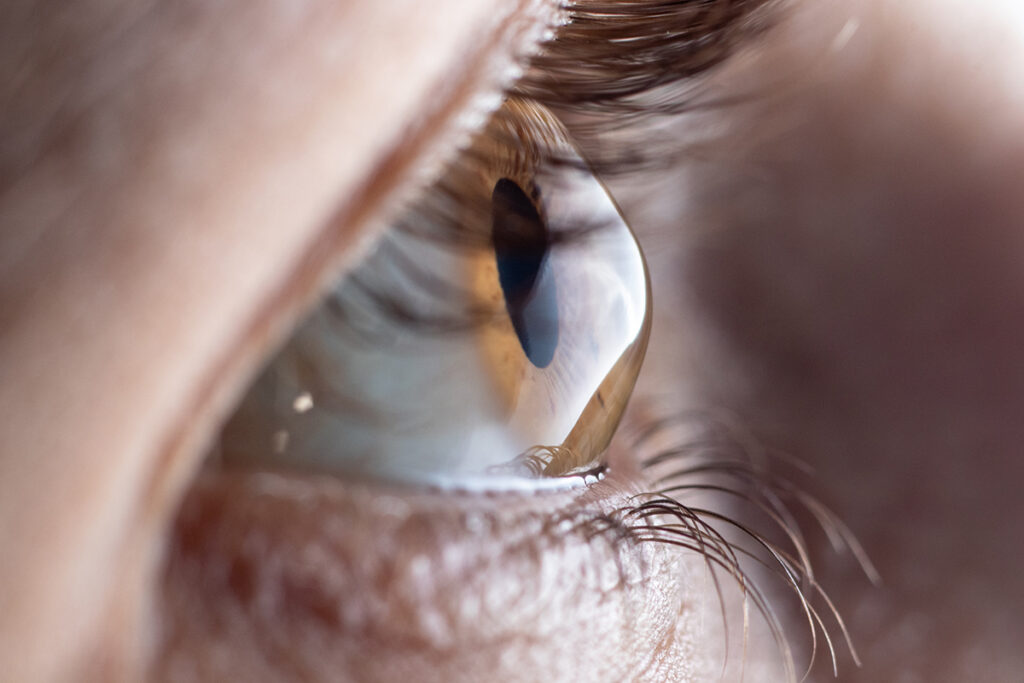Collagen is an essential protein found in the connective tissues throughout your body, including your eyes. Weakened collagen fibers in the front of your eye (cornea) can warp due to disease or trauma. Corneal collagen crosslinking works by using a mixture of ultraviolet (UV) light and vitamin B2 (riboflavin) to strengthen and reinforce corneal fibers and new collagen.
Corneal crosslinking is often needed to address keratoconus. This condition causes the front portion of the eye to thin and distort, altering the ordinarily round cornea into a cone-like shape that blurs vision. Glasses and contact lenses may improve blurred vision for some patients, but crosslinking can stop or slow the progression of the disease.
The Corneal Collagen Crosslinking Procedure
Dr. Ernest W. Kornmehl will explain the procedure during your visit at our Boston office, but the crosslinking procedure typically involves these steps:
- Anesthetic eye drops are used to keep you comfortable while a speculum holds your eyelid open.
- The cornea’s epithelial (thin, outer surface) layer is removed to provide deeper access in the eye for the medication.
- Riboflavin drops are applied for 30 minutes.
- UV light is directed into the cornea to activate the riboflavin for an additional 30 minutes with continued drops to create new connections between the cornea and collagen fibers.
- A soft bandage lens is placed over the treated eye for five days to help the cornea heal.
Corneal Collagen Crosslinking Recovery
You will use antibiotic and anti-inflammatory drops during the recovery period for two or more weeks after corneal crosslinking. Do not rub or touch your eyes, and be careful not to get water in your eyes as well. You should avoid makeup and any eye creams or moisturizers until you are cleared to use these products. Stay away from intense exercise that causes sweat to drip down your face and avoid dusty or smoky environments to reduce your risk of infection while you heal.
You might feel like something is in your eye and experience light sensitivity, dry eyes, blurry vision or mild eye discomfort. You should see improvement within the first few weeks of your recovery, but your eyesight may not stabilize for a few months. Six to eight weeks after your corneal collagen crosslinking procedure, you may need to update your glasses or contact lens prescription.
Contact Our Eye Surgeon in Boston
If you are experiencing vision changes, don’t wait for your annual eye exam. Contact Kornmehl Laser Eye Associates in Boston today to schedule your appointment.
